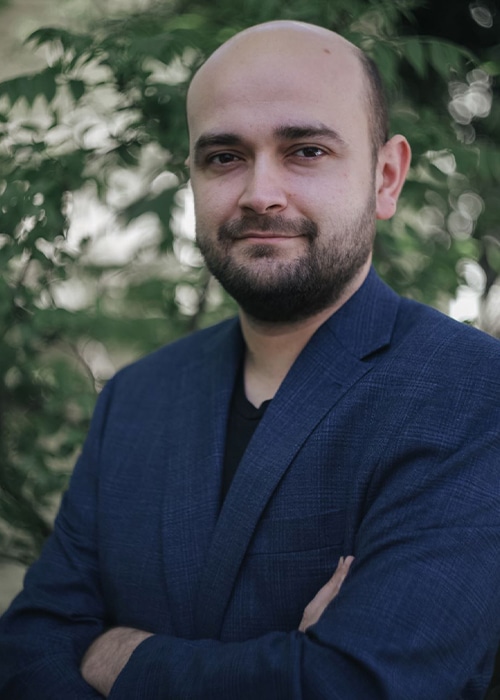Rudy Tanzi, PhD

Dmitry Prokopenko, PhD

Drs. Rudy Tanzi and Dmitry Prokopenko were 2020 WAM Research Grant recipients. In this study they used whole genome sequencing data, i.e. data on every position in the human genome, to identify genetic mutations, which are associated with Alzheimer’s Disease (AD) and related phenotypes, but have different effects in females and males. They have developed a statistical framework to model such sex-specific effects using family-based datasets, which are usually missed in a combined analysis. Next, using this approach in two family-based datasets, they identified four novel genes (GRID1, RIOK3, MCPH1, ZBTB7C) associated with AD risk, which show opposite effects in women versus men. The most robust finding was on the ZBTB7C gene, which demonstrated an increased risk for AD in females (and protection in males). Such sex-specific genetic findings will help to better understand potential differences between men and women related to AD development and facilitate precision medicine.
More about Dr. Rudy Tanzi
Dr. Rudolph Tanzi is the Director of the Genetics and Aging Research Unit, Co-Director of the McCance Center for Brain Health, Co-Director of the MassGeneral Institute for Neurodegenerative Disease, and Vice-Chair of Neurology (Research), at Massachusetts General Hospital, and the Joseph P. and Rose F. Kennedy Professor of Neurology at Harvard Medical School. Dr. Tanzi co-discovered the first three Alzheimer’s disease genes, including APP and directs the Cure Alzheimer’s Fund Alzheimer’s Genome Project, which identified the first neuroinflammation-related Alzheimer’s gene, CD33. He has also been developing therapies for treating and preventing AD using 3D human neural glial culture models of AD and is now testing them in various clinical trials. Dr. Tanzi has published over 600 papers, received numerous awards, including the Metropolitan Life Award, Potamkin Prize, Smithsonian American Ingenuity Award, and was one of the TIME100 Most Influential People in the World. Dr. Tanzi is a New York Times bestselling author, who co-authored “Decoding Darkness” “Super Brain”, “Super Genes”, and “The Healing Self”. He has also hosted three PBS shows and made numerous appearances on network and cable news and medical television shows. In his spare time, he plays keyboards for Joe Perry, Aerosmith and other musicians.
More about Dr. Dmitry Prokopenko
Dr. Prokopenko is an Instructor at the Genetics and Aging Unit and McCance Center for Brain Health, Massachusetts General Hospital and Harvard Medical School. Formally trained as an applied mathematician he has received his Diploma at the Saint-Petersburg State University in Russia in 2010. He further received his MSc. in Life Science Informatics in 2012 and PhD in Biostatistics/Epidemiology in 2016 from University of Bonn in Germany focusing on methods for population stratification in genetic association studies. During and after his PhD he made several major contributions in both: large scale whole genome sequencing (WGS) analyses and method development for such analyses. Those include methods to account for population structure using rare variants in WGS and several large-scale WGS studies of different phenotypes. He performed the first study to use WGS to identify novel genes associated with Alzheimer’s Disease (AD) and driven by rare variants – the dark matter, which is missed by regular genome-wide association studies (GWAS). He has also identified sex-specific mutations and rare functional variants in AD.
His current research interests focus on Alzheimer’s disease genetics and statistical and computational problems posed by large-scale whole genome sequencing and other -omics data. This includes rare variant studies, AD polygenic risk score (PRS) development, gene-by-environment and gene-by-gene interaction studies.
